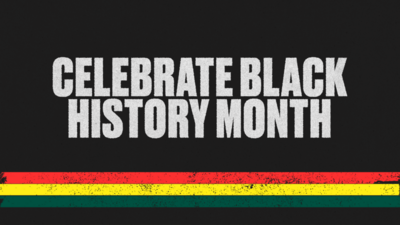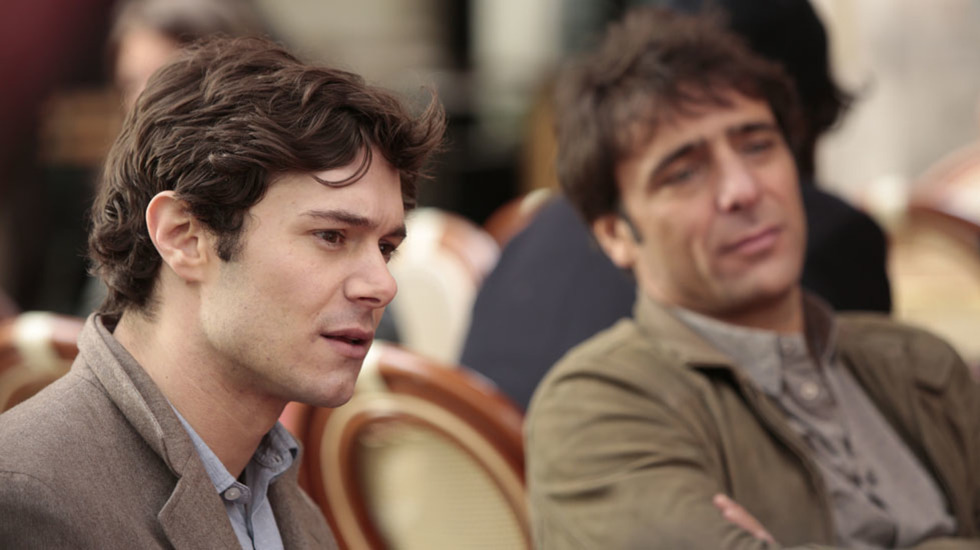
BY ZACHARY WIGON |
Interview: Whit Stillman On His New Amazon Show 'The Cosmopolitans'
One of the indie film world's favorite auteurs moves into television with 'The Cosmopolitans.' We talked to Stillman about actors, Paris, and his hopes for a full season.

It's not difficult to make the case that Whit Stillman is one of the most influential independent filmmakers working today. His singularly affected characters, with charming mannerisms and quirks that recall a WASPy answer to Woody Allen's neurotics, have clear descendants who've made their presence known in the works of Noah Baumbach and Wes Anderson, among many other quick-witted filmmakers working today. One of the seminal figures of the '90s independent scene (his debut feature Metropolitan - for which he garnered an Oscar nomination for screenwriting - has become a cult classic), Stillman dropped out of view for 14 years after his third film The Last Days of Disco, living in Paris, only to resurface in 2011 with Greta Gerwig-starrer Damsels In Distress.
Stillman is further solidifying his return to entertainment with The Cosmopolitans, his latest work. It's not a film, but, true to form for intelligent American auteurs these days, a TV series - from Amazon, no less. The series stars Adam Brody and Carrie MacLemore (both of whom were featured in Damsels) as two members of a coterie of American expatriates living abroad in Paris, trying to make sense of their lives - and their social environs - as they engage in a constant patter with their friends and companions, dissecting the codes of etiquette within which they find themselves. Stillman's trademark fascination with social affectation is on display front and center here, as usual, and one hopes Amazon audiences take to the result. That's because, as with all Amazon programs, whether or not The Cosmpolitans is put to series will depend upon how it's rated by viewers. The pilot became available today, and I had the pleasure of speaking with Stillman recently via phone.
This is the first thing I've done since Metropolitan where I feel I really know the milieu, I'm really dealing with things I know about.
Tribeca Film: What are your thoughts on what expatriates seek? It seems as if, often, they are looking for something foreign, but wind up interacting with familiar faces, socially.
Whit Stillman: Well, you just helped something occur to me that hadn't before. It might not have to be being in a foreign country, it could be about being in a different city from the one you grew up in. If you stay in the city you grew up in as an adult, you wind up staying friends with people from your early life. But if you go to another city or another country, you make some sense of your life - you wind up with friends whose interests align with your own. You don't have all those family and friends from the past. You can get in a group with people who purely like your interests.
Tribeca Film: Do you feel like the characters in The Cosmpolitans are in the midst of reckoning with their transition to adulthood?
WS: Well, you could say Paris, for them, is a place to become an adult, but it's also a place to escape from adulthood. It's a place to reshuffle the deck, to roll the dice again. If you didn't like the first hand you were dealt, you get a whole new set of cards. Sometimes you see women who've gotten out of a long relationship, maybe they've had a sad divorce, they like to go to Paris to recuperate.
Tribeca Film: Are the characters capable of change, you think? Does Paris change them? Or do they end up returning to being themselves, ultimately?
WS: No, I think they absolutely are capable of change, people normally do. I think unless there's something really wrong, people change a lot, and changing one's circumstances can be really helpful for that.
Tribeca Film: What was it about Paris that held your interest for the series?
Whit Stillman: Well, the cinematographer for Barcelona, John Thomas, won an Independent Spirit Award for the cinematography in that film. He said that making cinematography in a town like Barcelona is easy, because you can just point the camera anywhere and it looks great. Paris is the same way. This show came together because I had a relationship with Amazon - they'd optioned Metropolitan for a remake, it was one of the first things Amazon Studios did. So this fellow Roy Price, he was keen on Metropolitan, and he brought in two good comedy executives, and they had the idea of shooting something in Paris. They started talking to me, and for me it was ideal, because I had so many stories set in Paris. Prior to that, when I had spoken to companies about these stories, they said, we like this, but you have to move this to New York - we can't do this story in Paris. It was a stretch to do that, because these characters really were Paris people. This is the first thing I've done since Metropolitan where I feel I really know the milieu, I'm really dealing with things I know about.
So I got to know Carrie well, and I knew that she could play the role of Aubrey. It was kind of cool, the way this project changed and was transformed as we made it.
Tribeca Film: What is it, specifically, about the Paris milieu as an American expatriate, that speaks to you? The character of the city?
WS: There's a very rich free-form social life. In my group when I was there, it was the text era just as I got there - everyone there was getting into texts. It wasn't like London, where people make plans weeks in advance. In our group, people would send texts around three or four and figure out what was happening that evening. Say I wanted to meet with a friend at 7 or 7:30, we might discuss something for a bit at a cafe, have a glass of wine, people might come in around 8 and join us, and then if you wanted to peel off and have dinner at home you could, otherwise you could stay and have dinner. It was a free-form social life, very easy.
Tribeca Film: Tell me a bit about the manner in which you write. Your characters all speak in a very distinct, affected manner, but within the atmosphere of your work, you're able to paint varied and unique voices, as is the case with The Cosmpolitans.
Whit Stillman: I really don't know where it comes from - that's just how it comes out. I know it's aided enormously by the casting process. I remember some people saying, with The Last Days of Disco, that the five male leads were indistinguishable. And I remember that I kept moving around from part to part, so maybe they were indistinguishable. In this case, I'm helped by the fact that Adrianno Giannini, for example, really is a cool Italian guy. One thing that will help the storyline for Aubrey, Carrie MacLemore's character, if we get to go ahead, is that the actor playing her jerk boyfriend is actually very funny. The French guy who takes an interest in Aubrey at the party at the end of the pilot, he's played by a real French actor who happens to be very comfortable in English. You know, I hardly ever use ad-lib lines on set - sometimes I let the actors do it to help them, but I cut it in the editing room - but he had an idea - when he invites Aubrey to the opera next week, and Aubrey says what evening next week, and he says, all of them - that was a line he came up with.
Tribeca Film: Carrie MacLemore was basically a discovery in Damsels In Distress. What led to you casting her in The Cosmpolitans?
WS: It's terribly helpful to get to know actors personally, and it was helpful for me that Carrie's family had arranged this incredibly fun premiere for Damsels in Montgomery, Alabama, so I got to go down there for a weekend and see the milieu she's from. She was a real trooper when we were doing Damsels, trying to learn all the dances. We were going to all these eccentric country & western dance nights during the prep. So I got to know Carrie well, and I knew that she could play the role of Aubrey. It was kind of cool, the way this project changed and was transformed as we made it. The Amazon executives, whom I got along with really well, were in Paris, and they said, we'd love to have more of Chloe Sevigny in this episode. I had a scene in a different episode where I had Chloe's character giving Aubrey advice, and I realized I could pull that forward and put it in the pilot. Anyway, I think it's good to know the actors and use their biographies in the construction of the stories. It's useful to work with people you know and like, like Chloe, Carrie, Adam.
There's an alchemy between an actor and a part, and if you have a chance to see what the actor is going to do with the words, that's so fantastic.
Tribeca Film: What are your thoughts on the audition process, bearing that in mind? Do you find having an actor come in and read to be helpful?
WS: Well yes, that's a wonderful luxury, if an actor can come in and read. I just think it's terrible, the way the business is set up, how you're supposed to give offers to people you don't know. There's an alchemy between an actor and a part, and if you have a chance to see what the actor is going to do with the words, that's so fantastic. But this offer-only stuff prevents that from happening. It has to be done carefully and with total respect, but it's interesting for the actor, if they can see if the director feels the same way about the part as they do. Usually there's one person, for me, who catches fire with the material, and that makes all the difference.
Tribeca Film: You're known for making some seminal indies in the 90s, and you're now working in TV. Do you feel like intelligent work is now being made in TV rather than film?
WS: Well, my favorite films are either classic cinema made before World War II, or tiny indie films - and I think tiny indies are still very good, I think they're better than in the past. There are many intelligent, funny, micro-budget indies. I feel close to them in a way I didn't in the 90s. I think that's the best stuff happening. I'm really glad that I had the chance to make this pilot. The Amazon tendency, I think, is coming toward wanting specific voices, and not packaged products. The main thing they want is a distinct voice. That's great for me. I'm not sure what'll happen, but I was incredibly happy to make this. I hope it'll go to season, but I don't know what the decision will be.
[Stillman has our vote! As of today, you can go to Amazon to watch and rate The Cosmopolitans.]


